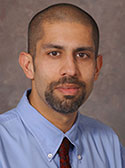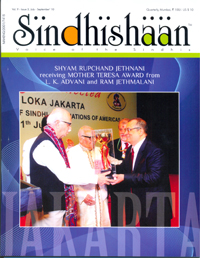![]()
THE LOST ART OF LISTENING
By Lavjay Butani

As a physician one of the most frustrating issues I hear about stems from doctors and other health-care professionals not attempting to connect with their patients. As a medical educator I see the same apathy in many of our teachers- the failure of educators to get to know their learners as people and to invite them to share their own selves- their needs and their learning goals. No wonder that today’s doctors in training are not equipped to listen and not comfortable in taking time to get to know their patients.
But should we really care? After all, isn’t medicine is a science, meant to be learned and practiced based purely on rigorous scientific principles? And we ourselves, as past students of this scientific discipline, we never really trained in this ‘touchy-feely’ method of medicine; we turned out all right, didn’t we? So why this new shift in our focus?
While using past practices, even successful ones, as an excuse to not move forward may seem acceptable to some, to many of us that just doesn’t ring true. Just because we were trained in a paternalistic style of practice where the doctor makes the decisions and tells the patient what needs to be done, doesn’t necessarily mean that that is the right thing to do, even if patients for the most part did well with that style of practice. What happened to our role as ‘healers’ and ‘care-givers’-curing not only a ‘disease’ but tending to the body as a whole and even more importantly, healing the soul? On the altar of scientific breakthroughs and breathtaking advances in medicine, we have unwittingly sacrificed the greatest gift we have been given by our patients: their ‘trust’ in us to listen to their needs and bring them comfort and not just a cure for their afflictions.
Even the scientific community now recognizes how far afield we have strayed, and even provides empirical evidence of why we need to develop a more collaborative clinical approach. The past several decades have seen a dramatic change in the nature of illnesses that we now encounter in our patients. A new breed of chronic diseases, those founded on changing lifestyles and habits, have emerged-high blood pressure, heart disease, stroke, diabetes and the most recent epidemic of obesity. These being products of an unhealthy lifestyle, that we have consciously chosen to follow, it would be naïve for us to believe that a ‘dictatorial’ style of medicine would continue to be an effective strategy for doctors to practice. Since so much of the management of these conditions is based on education of and self-monitoring by, patients, successfully managing chronic illness requires an understanding of the needs of the patient and of the family. Collaboration between the patient, the family, and the health care team, in setting goals and in working towards them is imperative to ensure a successful outcome.
Teaching and practicing collaborative medicine and family centered care is an underappreciated and poorly studied strategy. Only a handful of studies have looked into this and have perhaps suggested a positive effect of such an approach on patient outcomes and/or in quality of life measures providing an opportunity for much greater attention and research in this area. As an educator, I believe that one of the main reasons why family centered care remains understudied is that most of us are unfamiliar with the rationale, techniques and potential benefits of such an approach. Even the Institute of Medicine recognized this and recommended that ‘all health professionals should be educated to deliver patient-centered care as members of an interdisciplinary team, emphasizing evidence-based practice, quality improvement approaches, and informatics.’
As educators, we need to ensure that not only are we ourselves competent in patient-centered care but that we also inculcate in our learners (medical students, residents, fellows and colleagues) qualities necessary to do the same. Qualities such as listening, demonstrating respect for family perspective and expertise, empowering families in the decision making process and building on the strengths and capabilities of our families not their failures and weaknesses. Deliberate practice, role modeling and incorporation of formal instructional methods are all necessary to achieve this goal.
Our patients (and our learners) deserve this. Patients are a vulnerable population, at high-risk of non-adherence, which can have devastating consequences for them, their families and society as a whole. If by teaching and practicing collaborative clinical care we can make a difference, as the evidence seems to suggest, we should be all in favor of embracing this approach. Being an empathic care-giver and a ‘listener’ is morally the right thing to do but it is only one of many ways to improve patient satisfaction. Is it also an approach that will consistently improve quality of life and patient outcomes? The question remains unanswered and begs to be addressed in well-designed studies using valid tools.
Let us follow the words of Socrates who in his wisdom reminds us that ‘Nature has given us two ears, two eyes, and but one tongue-to the end that we should hear and see more than we speak.’
(Dr. Lavjay Butani, M.D., is an Associate Professor and Section Chief – Department of Pediatrics, Section of Nephrology at the CIC Davis Medical Centre, Sacramento, California, U.S.A.)



